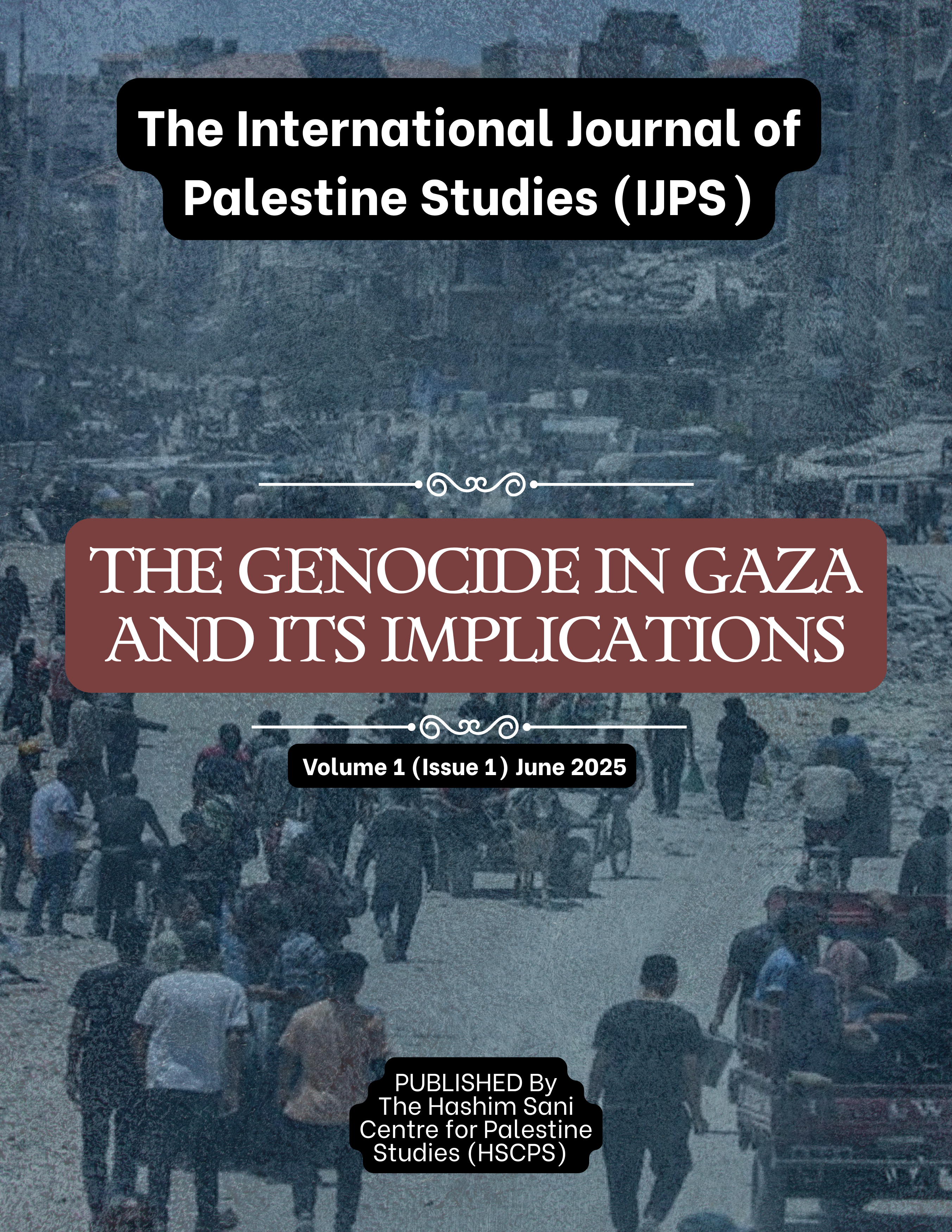Murdering Minds: Israel’s Systematic Targeting of Palestinian Scholars and Its Impact on Palestinian Higher Education: A Case Study of IUG
Main Article Content
Abstract
Since October 2023, Israel’s intensified military campaign in Gaza has extended beyond physical destruction to the deliberate targeting of Palestinian intellectual life. Education, serving as both a means of development and a form of national resistance, faces an existential threat as the assassination of scholars directly undermines resilience and post-war reconstruction. This study examines how the killing of academics disrupts mentorship and the intergenerational transfer of knowledge among postgraduate students at the Islamic University of Gaza (IUG). It also assesses IUG’s institutional responses amid widespread infrastructure collapse and ongoing genocide. Using a qualitative case study approach grounded in Pierre Bourdieu’s theory of academic capital (1986), the research draws on semi-structured interviews with three professors and three Master’s students from Linguistics, Islamic Studies, and Geography faculties. Findings reveal a collapse in supervision capacity, ruptured knowledge transmission, and loss of disciplinary depth, especially in specialized fields like Islamic Creed. Beyond documenting these impacts, the study theorizes the destruction of a people’s capacity to imagine and build a collective future as intellectual erasure. As a critical contribution, this paper introduces “mindocide”—the deliberate targeting and killing of scholars as epistemic warfare, and coins three additional terms: Palestiniacide (systematic targeting of Palestinians), futuricide (the killing of future possibilities), and humanitycide (the destruction of human dignity and collective humanity). By framing higher education as both a target and a tool of resistance, this study sheds light on the academic dimensions of genocidal violence in Gaza.
